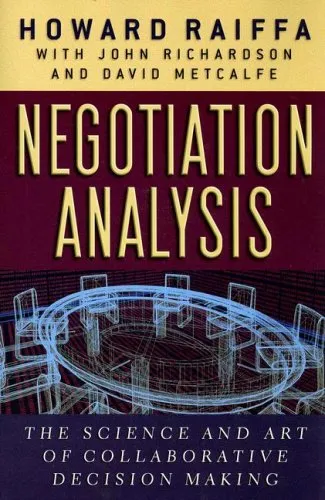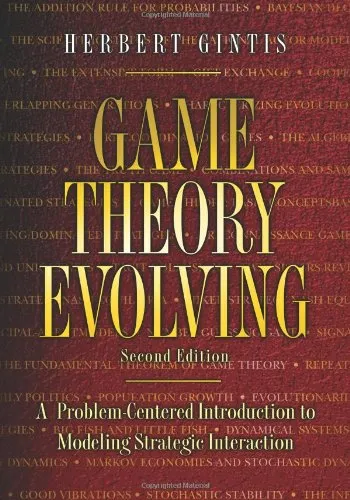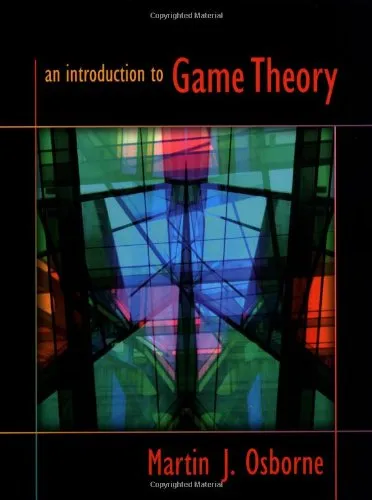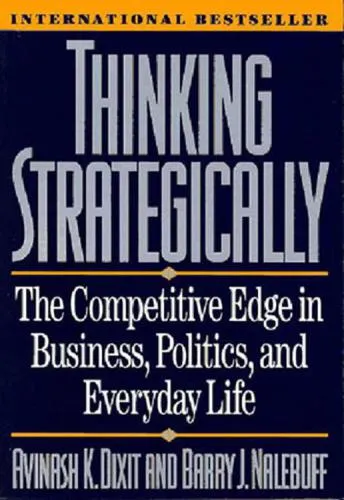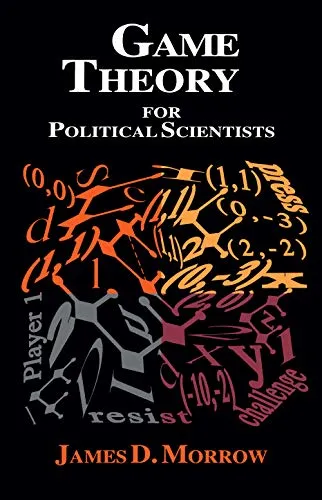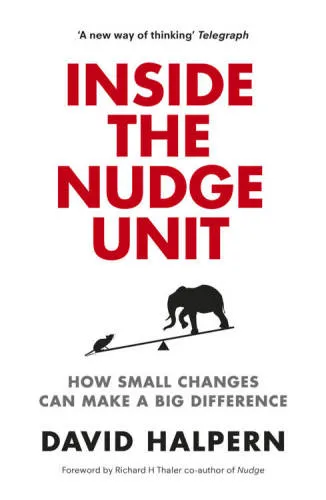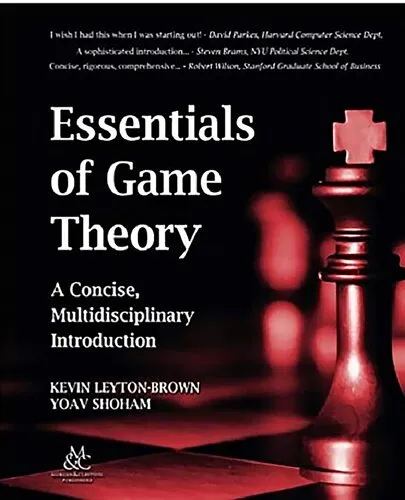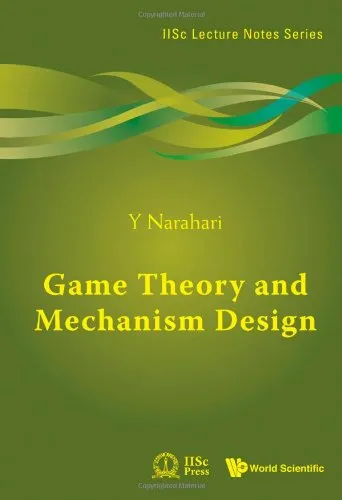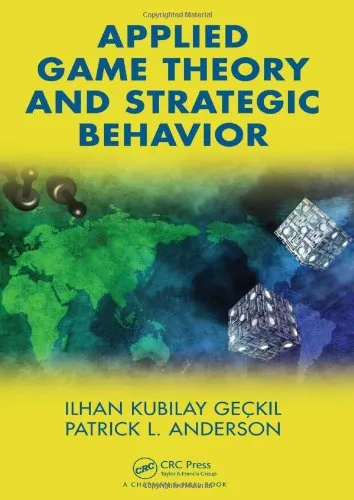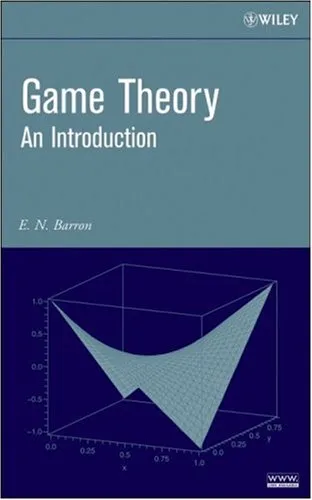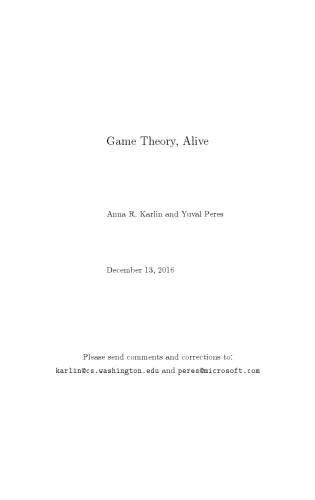Theory of Games and Economic Behavior
4.5
Reviews from our users

You Can Ask your questions from this book's AI after Login
Each download or ask from book AI costs 2 points. To earn more free points, please visit the Points Guide Page and complete some valuable actions.Related Refrences:
An Introduction to "Theory of Games and Economic Behavior"
John von Neumann and Oskar Morgenstern's groundbreaking work, "Theory of Games and Economic Behavior," revolutionized economics and introduced game theory as a powerful analytical tool for understanding decision-making in competitive and cooperative environments.
Detailed Summary
Published in 1944, "Theory of Games and Economic Behavior" is a seminal text that introduced the concept of game theory and applied it to economic behavior. The book is a pioneering interdisciplinary collaboration between mathematician John von Neumann and economist Oskar Morgenstern. Von Neumann had previously established the mathematical foundations of game theory in a 1928 paper, but this collaboration expanded the theory and applied it systematically to economics, transforming both fields.
The core of the book is the study of strategic interactions where the outcome for one participant depends not only on their own decisions but also on the decisions of others. Von Neumann and Morgenstern analyzed situations involving competition and cooperation—ranging from simple two-player games to complex multi-player interactions—and introduced mathematical models to predict outcomes. Their work also formalized the concepts of zero-sum games, utility theory, and equilibrium, generalizing these ideas beyond economics and into political science, psychology, and evolutionary biology.
Key concepts introduced in this book include the minimax theorem for zero-sum games, a precursor to the Nash Equilibrium, and the concept of rational behavior in economic agents under uncertainty. Divided into sections, the book begins with an introduction to the mathematical theory of games, proceeds to applications within economics, and concludes with broader implications of game theory for social sciences as a whole.
Key Takeaways
- The idea that strategic interactions can be modeled mathematically is central to understanding competition and collaboration.
- Game theory provides tools for analyzing decision-making in contexts where individuals or groups pursue conflicting or aligned objectives.
- The introduction of utility theory allowed for quantifiable analysis of how participants evaluate outcomes under uncertainty.
- The minimax theorem is one of the cornerstone results of game theory, laying the groundwork for modern applications in economics and other fields.
- The collaborative nature of the text highlights the importance of interdisciplinary research in advancing scientific thought.
Famous Quotes from the Book
"Economic behavior is? fundamentally a process of decisions—decisions by individuals, by groups, by organizations, or by a society as a whole."
"The notion of a game, both in its formalized and its more common sense, indicates a conflict. In fact, an essential part of its structure lies in the doubling or multiplication of decision trees."
Why This Book Matters
The impact of "Theory of Games and Economic Behavior" extends far beyond its original target audience of economists. The concepts introduced in the book laid the groundwork for game theory to become a cornerstone in a variety of fields—from evolutionary biology to computer science to political strategy. Its deep integration of mathematical rigor into the study of human decision-making redefined how we analyze problems involving mutual interdependence and strategic thinking.
This book is considered one of the most influential works of the 20th century, offering profound insights into the nature of competition and collaboration. For economists, it provided a formalized way to analyze markets and behavior under uncertainty. For mathematicians, it introduced a new and challenging branch of applied mathematics. For anyone interested in decision-making and strategic thinking, this book remains an essential read.
The legacy of "Theory of Games and Economic Behavior" is ever-present in modern academia and practical decision-making. Nobel Prizes in Economics have been awarded to those who further developed concepts originating in this work, such as the Nash equilibrium and mechanism design. Thus, it is not just a book but a foundational framework for understanding the intricacies of strategic choice in any field.
Free Direct Download
You Can Download this book after Login
Accessing books through legal platforms and public libraries not only supports the rights of authors and publishers but also contributes to the sustainability of reading culture. Before downloading, please take a moment to consider these options.
Find this book on other platforms:
WorldCat helps you find books in libraries worldwide.
See ratings, reviews, and discussions on Goodreads.
Find and buy rare or used books on AbeBooks.
1430
بازدید4.5
امتیاز0
نظر98%
رضایتReviews:
4.5
Based on 0 users review
Questions & Answers
Ask questions about this book or help others by answering
No questions yet. Be the first to ask!

